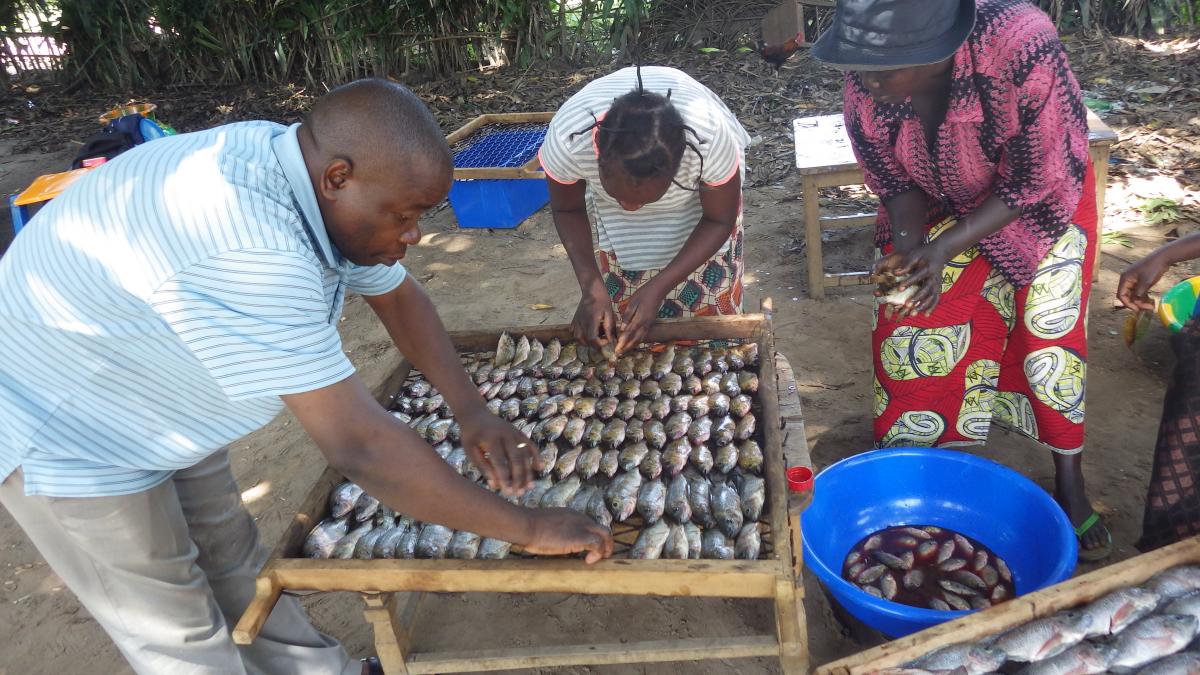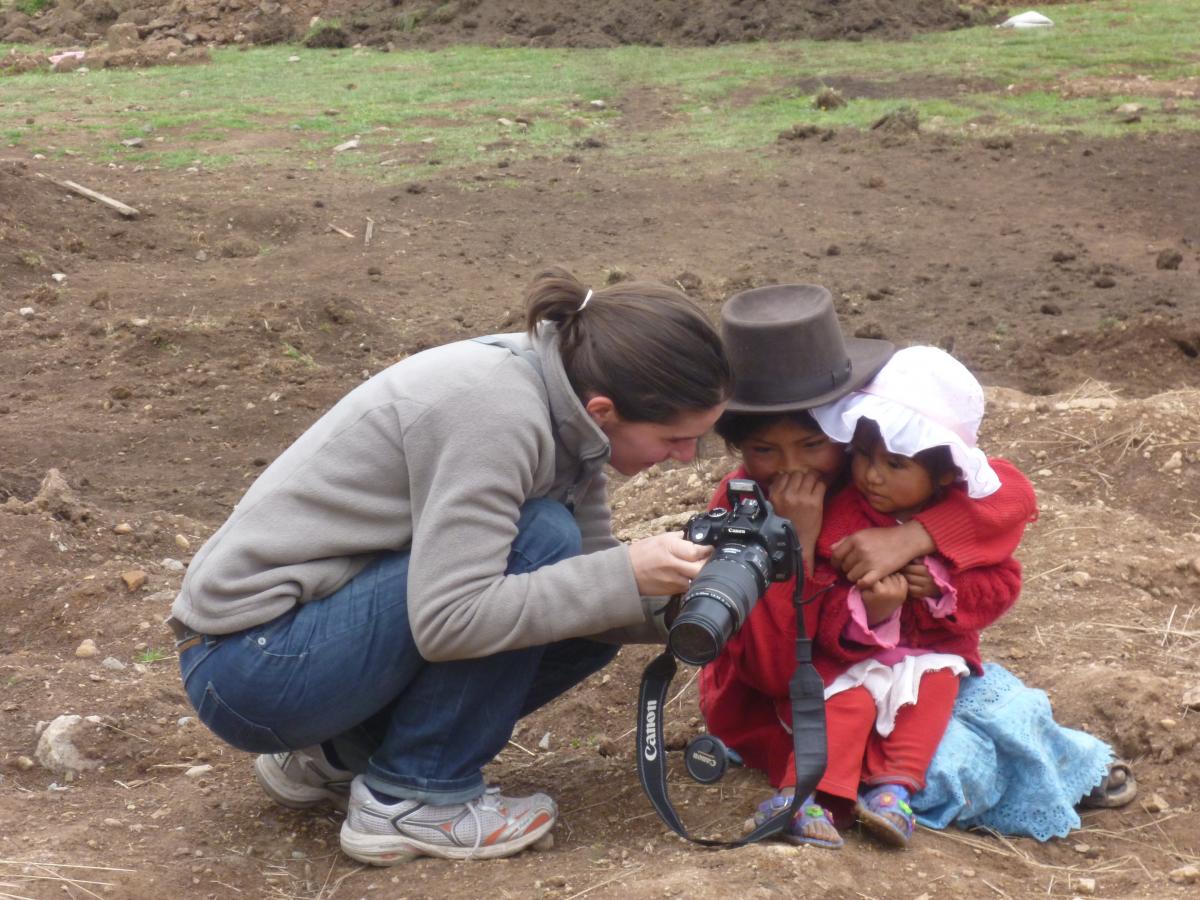Search
Viewing 2625 to 2640 of 3119 news
-

Séminaire sur le rôle de la société civile dans la gestion des déchets.
Halima HORRI | 01/03/2018
Le 27 et 28 Novembre 2017, s’est tenu un séminaire à Oran portant sur le « Rôle de la société civile pour appuyer les opérateurs dans la gestion des déchets ». En effet, il est impossible pour les opérateurs pour engager le citoyen dans un processus de changement de comportement (respect des horaires et des lieux de ramassage, tri à la source) sans pouvoir s’appuyer sur un réseau d’acteurs proches de la population. Le séminaire a été animé par Mme Françoise Lardenoey Françoise, Directrice de prévention déchet et son adjointe, Mme Pierrine Meessens Pierrine de l’Intercommunale de collecte et de valorisation des déchets ménagers de la Région de Charleroi – ICDI.. Une quarantaine de personnes y ont participé ainsi que Monsieur Tarek Nfezi de l’Institut Eco-Conseil, Namur, en charge de la préparation des kits de sensibilisation destinés à la société civile des trois wilayas de la zone du projet.
-
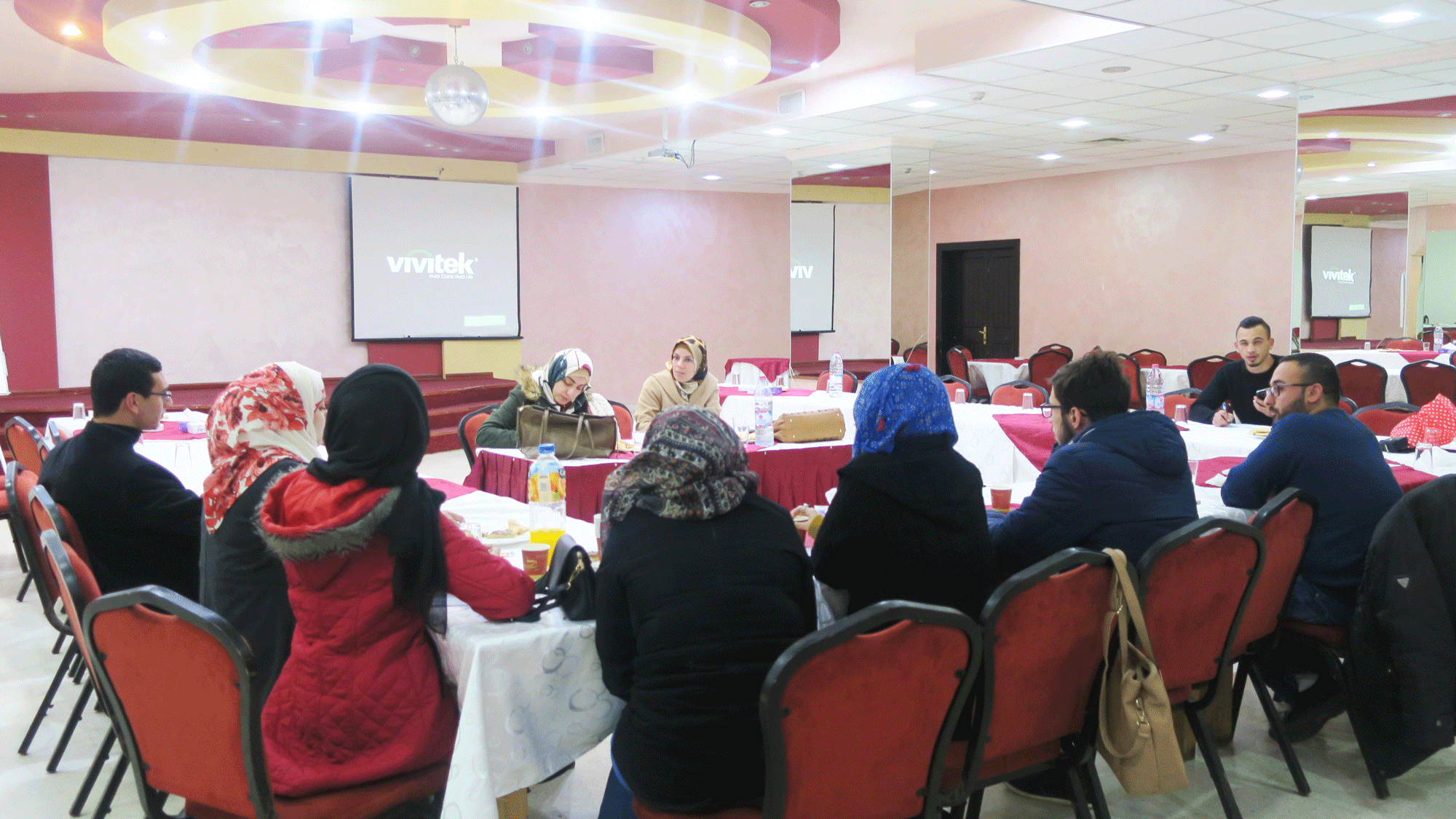
Focus group workshops organized to assess the citizens’ perception of the programs
Laura SCHILLEMANS | 28/02/2018
The Belgian Development Agency conducted public surveys & focus group workshops to assess the citizens’ perception of the changes brought by the LGRDP (Local Government Reform and Development Program) and RHC (Regeneration of Historic Centers) projects. The objective of the assignments was twofold: to conduct a diagnostic and evaluative research of the LGRDP intervention in the 4 clusters that were targeted since LGRDP I and to conduct a diagnostic and evaluative research in the 12 localities that will be targeted in LGRDP II. During the assignments, the program didn't only want to understand the perception of the citizens, but it also wanted to empower the LGU* or Joint Service Councils to conduct this kind of analysis themselves in the future. During the workshops, questions related to the interventions were asked: on the importance of community participation when mapping the needs (before starting the project implementation), on how to increase tourism to heritage buildings and old building in rural areas and on how to facilitate inter-neighbourhood collaboration to improve the living conditions of the inhabitants. Zied Diab, the 22-year old head of the youth center in Aboud, also highlighted the importance of involving the youth (sector) to (1) improve their knowledge about the rehabilitation old buildings and historic centers and (2) to listen to their opinions and ideas on how to improve their villages and how to connect the rehabilitation to economic development. *LGU (Local Government Unit) can be a Municipality or a Village Council
-
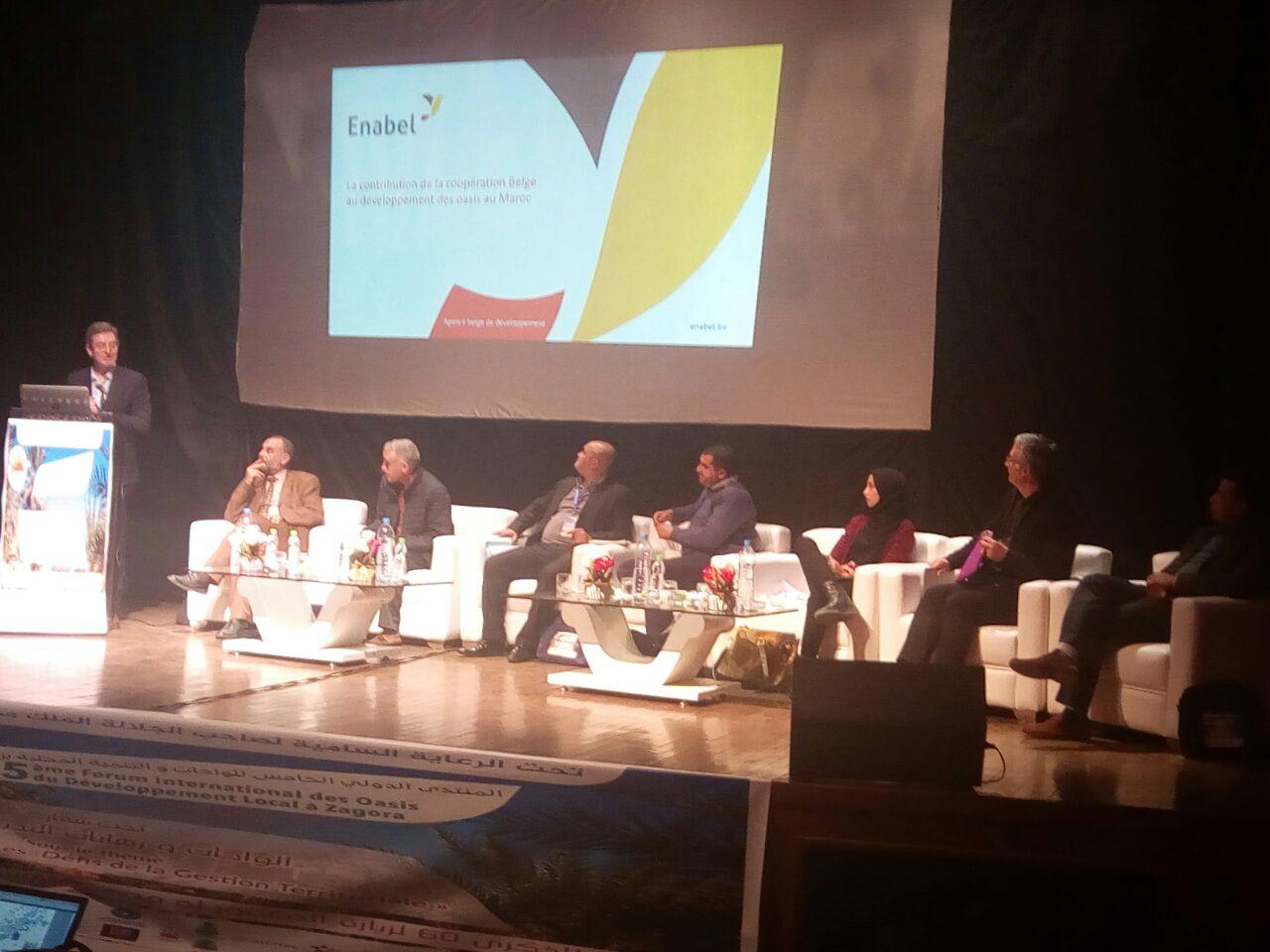
Zoom sur la contribution de la coopération belge dans le développement des zones oasiennes
Meriem HILALI | 28/02/2018
A la 5éme édition du forum international des oasis et du développement local qui s’est déroulé du 24 au 27 février 2018, à Zagora (sud du Maroc) sous le signe « Les oasis face aux enjeux de la gestion territoriale », Enabel a présenté la contribution de la coopération belge dans le développement des zones oasiennes depuis plus de 25 ans. Objectif: l'amélioration des conditions de vie des hommes et des femmes des oasis tout en préservant l’équilibre écologique qui a assuré la survie des oasis depuis des centaines d’années.
-
La pisciculture : outil de développement de la pêche artisanale.
Julie CLAASSENS | 26/02/2018
L’activité aquacole est très rentable si elle est associée à l’élevage du petit bétail et à la culture maraichère, indiquent les spécialistes. La pisciculture est la pratique de l’élevage de poissons dans les étangs artificiels ou des réservoirs pour la consommation humaine. Ceci est également connu comme l’aquaculture et est devenue très répandue dans le monde entier au cours des dernières décennies. L’élevage de poissons comme les autres types d’agricultures, offre une multitude d’avantages qui peuvent aider l’environnement, notamment la pisciculture qui permet de grandes réserves de poissons à être cultivées selon la demande exprimée. Aussi, attraper des poissons dans la nature ne peut suffisamment offrir de produits pour répondre positivement à la demande des consommateurs et garder en même temps l’écosystème naturel en équilibre.Ainsi, le PRODADEKK compte parmi ses objectifs celui d’améliorer la transformation et la commercialisation des poissons dans cette vaste zone traditionnelle de la pêche à Masi-Manimba, pour contribuer au développement de la pêche artisanale et de l’aquaculture à Buala-yulu, afin d’améliorer le niveau de vie des populations.D’où la nécessité et l’importance d’une descente de l’équipe en charge du développement de la pisciculture dans les bassins de production de Bwala-yulu. Du 04 au 05 et du 11 au 16 décembre 2017, la mission était axée sur deux objectifs majeurs. D’une part, la fixation des annexes métalliques du four Chorkor et la formation sur la pratique des techniques de transformation améliorée des poissons, d’autre part.Premièrement, la fixation des annexes métalliques a été effectuée par les différents ajusteurs trouvés sur place, dans un atelier mécanique. Par ailleurs, d’autres annexes ont été fabriquées directement où est implanté le four sur terrain, tels que : le collecteur de graisse, le fourneau muni d’une forge, le répartiteur d’air, les couvercles des compartiments du four et le système indirect générateur de fumées. Ensuite, l’activité de la formation de l’équipe relais des mareyeuses sur la pratique des techniques de transformation améliorée, concentrée sur la collection de matières premières à transformer, mais aussi sur la sensibilisation et la commercialisation de poissons tout autour de cette zone traditionnelle de pêche. Enfin, les poissons ont été collectionnés et l’opération de transformation a commencée. L’utilisation du four Chorkor a été démontrée et les différentes techniques apprises en formation théorique ont été illustrées à la grande satisfaction des bénéficiaires. Ainsi, toutes ces pratiques de mareyeuses ont permis de sensibiliser les communautés, à la nécessité d’améliorer leurs techniques de transformation et de commercialisation des poissons et à pratiquer des techniques de pêche responsable.En somme, l’ensemble des mareyeuses de Buala-yulu était très ému de l’accompagnement et suivi reçu. Elles sont, en outre, contente de bénéficier non seulement de la formation mais aussi de la réception du module de formation simplifié, illustré et très pratique, et de l’attestation de fin de formation en qualité de formatrice des autres mareyeuses.
-

Le chantier école à Kasenga: l'accomplissement des rêves des élèves.
Julie CLAASSENS | 26/02/2018
Le chantier école à Kasenga consiste d'une approche pédagogique active, c'est-à-dire: les apprenants se professionnalisent 'en faisant' et sont guidés par un expert, c'est-à-dire un artisan local. Ainsi, un groupe de treize élèves construit leur propre hangar afin d'y suivre des ateliers et de stocker du matériel. Cinq d'entre eux sont des soudeurs, six sont des maçons. Ces élèves suivent l'option agriculture et au chantier ils sont payés sept dollar par jour, ce qui leur permet d'économiser et de travailler sur des projets de futur. Cecile, par exemple, paie ses propres frais scolaires pour toute l'année, aide ses frères à payer leurs études universitaires, donne une partie de l'argent à ses parents et a déjà investi dans son propre champs, situé à l'Institut. La courageuse!
-
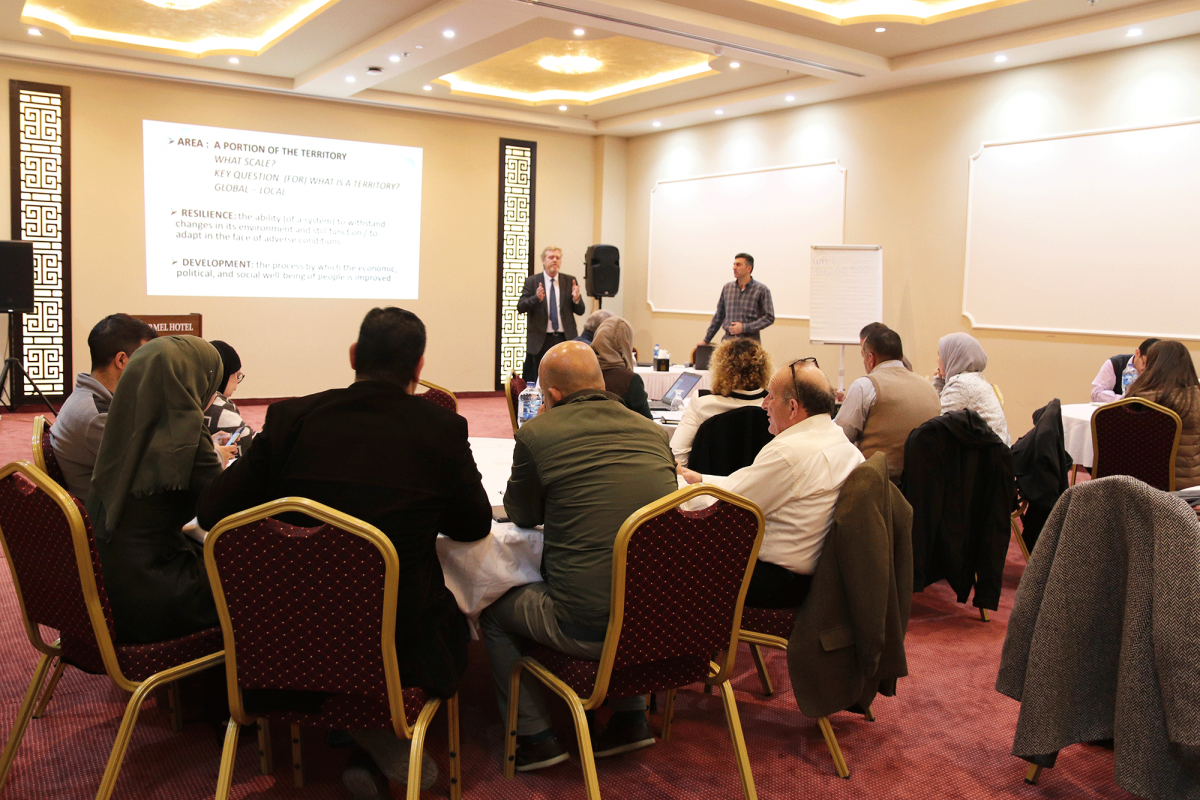
Information session on the newly developed Area Resilience Development (ARD) initiative
Laura SCHILLEMANS | 23/02/2018
Last week, Enabel organized an information session on the newly developed Area Resilience Development (ARD) initiative for all its key stakeholders. The initiative is supported by the Belgian Development Cooperation, together with the European Union, national and international NGO’s, APLA and the Ministry of Local Governance. The ARD initiative aims to create a more effective decentralized administration in the West Bank and to overcome the fragmentation of the territory by re-integrating area C. The focus will lie on facilitating local development dynamics, reducing disparities, strengthening social cohesion, developing an equal access to basic services and free circulation, and promoting a good participatory administration of the territory at all relevant territorial levels. Furthermore, local institutions and actors will be encouraged to work together to define priorities and to plan and implement development strategies of their localities where the territory is considered as the primary resource (including social, natural, physical, cultural, institutional and economic local resources). This way, the territory also becomes an actor of local economic development. Plans have already been drawn up for 6 different clusters: Khalet El-Maya, the East Bethlehem JSC (Tuqu, Beit Tamar & Jannata), Barta, Bani Zaid, Beit Leqya and Jourt Amra JSC.
-
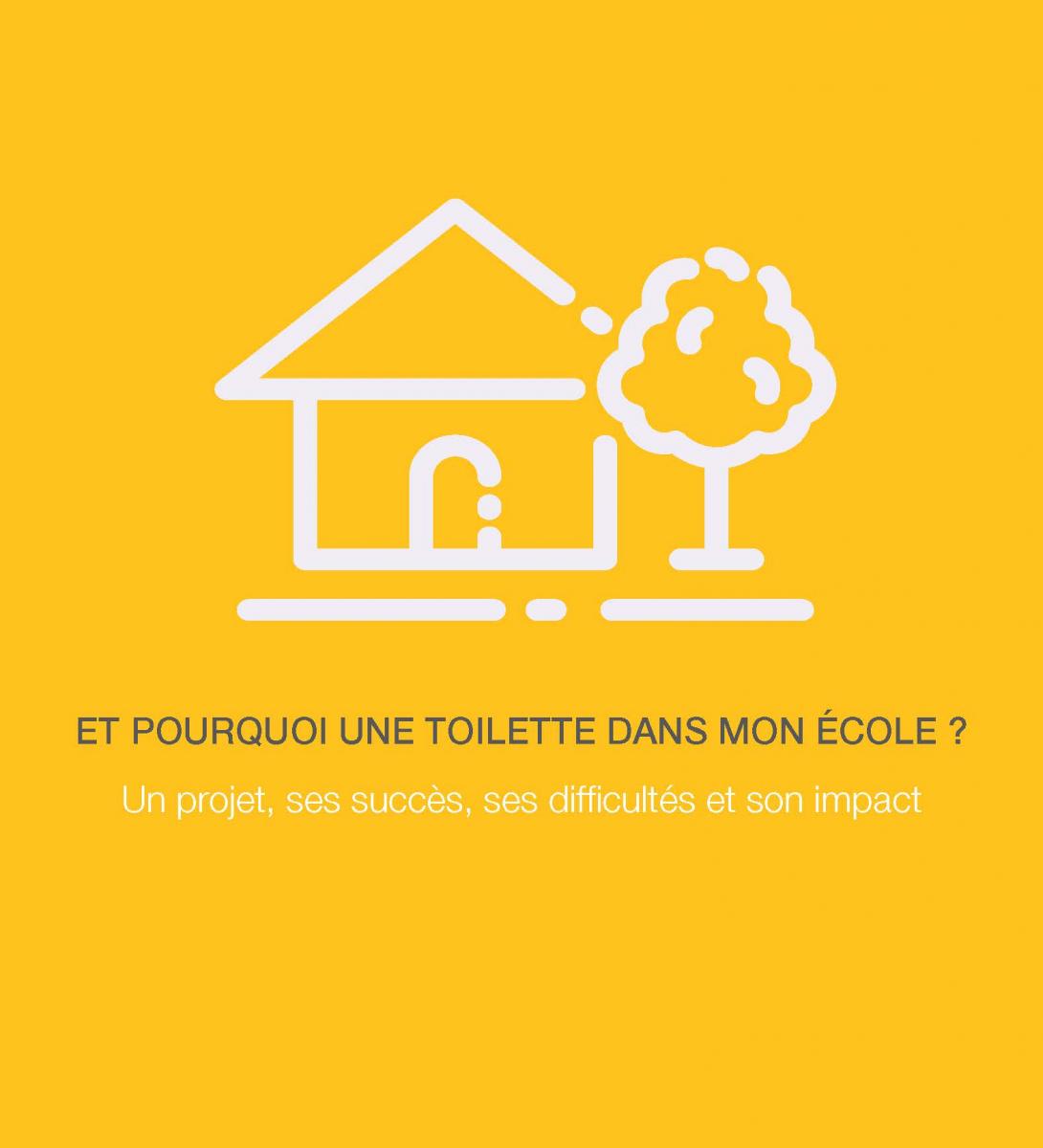
L'histoire complète d'un projet de construction de toilettes
Roxane VANLERBERGE | 21/02/2018
Découvrez l’histoire complète du projet, ses succès, ses difficultés et son impact à travers les yeux de ceux qui en bénéficient directement, de l’équipe de projet et des partenaires à l'occasion du séminaire de capitalisation, marquant la fin du projet d’appui au programme national de mise à niveau environnemental des écoles rurales. Bonne lecture ! https://goo.gl/h56wBp
-
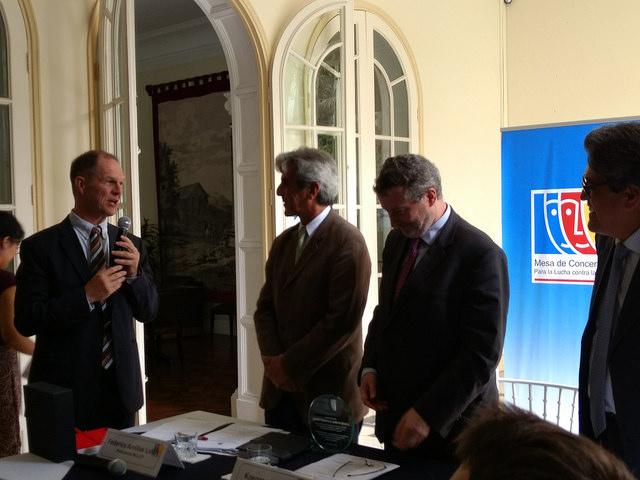
Febrero 2018: SISFIN presenta sus resultados en la Mesa de Concertación de Lucha contra la Pobreza
Véronique GERARD | 20/02/2018
Recordemos lo que es el SISFIN El SISFIN es el componente a través del cual Bélgica brinda un apoyo financiero dirigido al Programa Presupuestal de Salud Materno Neonatal - PPSMN, en el Perú. En este sentido, SISFIN contribuye, entre otros, a un dialogo de políticas, apoya el análisis de cuellos de botella para mejorar el acceso a servicios de salud y analizar los problemas relativos a la capacidad de la Gestión de Finanzas Públicas a nivel regional. Los gobiernos regionales de Amazonas y Cajamarca tienen acceso a estos fondos adicionales firmando convenios con el Ministerio de Economía y Finanzas (MEF). Parte de estos fondos son condicionados a la mejora de procesos de gestión en general del PPSMN y a la cobertura de los servicios para la población vulnerable, afiliada al Seguro Integral de Salud (SIS). Esta mejora se mide contra metas negociados para indicadores específicos. SISFIN en la MCLCPEl pasado 6 de febrero, fue precisamente la presentación de los resultados de la evaluación del PPSMN. Fue presentado a la ocasión de la reunión de la Mesa de Concertación para la Lucha contra la Pobreza (MCLCP), espacio en el cual Geert Haghebaert, el experto senior y Ellen Velkeneers, Asistente Junior vienen contribuyendo al dialogo de las políticas públicas en esta materia. El embajador de Bélgica en Perú, Koenraad Lenaerts, destacó el proceso de concertación que se realiza en Perú mediante la MCLCP: “Desde el inicio del SISFIN en el 2014, rápidamente entendimos el gran valor de la Mesa de Concertación, no solamente como foro de diálogo neutral para la lucha contra la pobreza y para lograr que fluya entre Estado y sociedad civil, también como un lugar privilegiado para un análisis y seguimiento específico en temas prioritarios en salud”. * Ver el artículo del evento: http://www.mesadeconcertacion.org.pe/noticias/mesa-nacional/destacan-apoyo-de-belgica-al-programa-de... * Ver las fotos del evento: http://bit.ly/2nTTKM4 * Ver el informe de evaluación del PPSMN: https://www.mef.gob.pe/contenidos/presu_publ/ppr/belgica/inf_desempe%C3%B1o_PPSMN2016.pdf
-

Human Resource Development: helping people becoming better at their job
Thea MATHUES | 20/02/2018
Receiving quality health care and education is not a given in Uganda. Although efforts towards better service delivery have been made by the Ugandan government, civil society and donors, a lot remains to be done. That is why the Belgian development agency, in cooperation with the Ugandan government, set up a project to contribute to improved service delivery by helping doctors, nurses, teachers, principals and managers become better at their job.
-
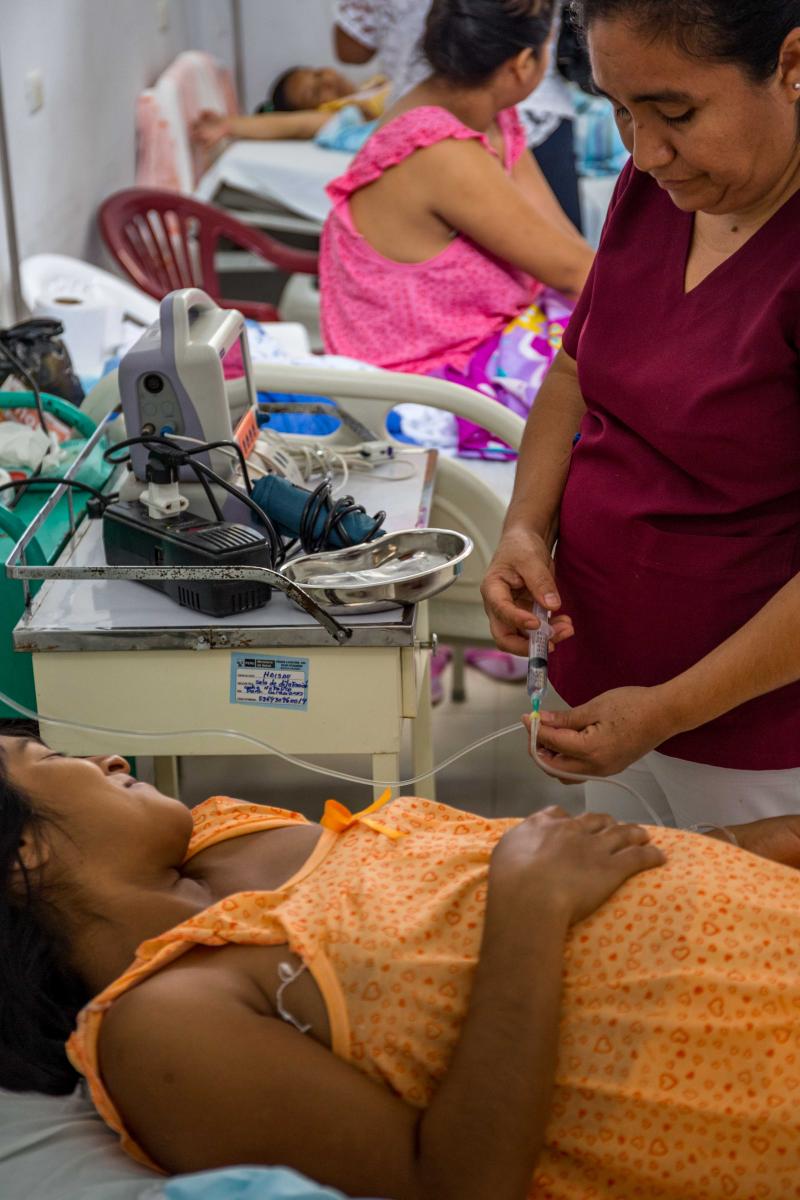
Noviembre 2017: Informes de evaluación y de desempeño
Véronique GERARD | 19/02/2018
1. Evaluación del Apoyo Presupuestario en Perú (2009-2016).Entre 2009 y 2016, el Perú ha recibido un apoyo presupuestario de la Unión Europea y de Bélgica (a través del SISFIN). Por este motivo, la Comisión Europea y la Cooperación belga en el Perú, conjuntamente, han encargado una evaluación de cuatro operaciones de Apoyo Presupuestario (AP) cuyo volumen de financiamiento suma un total de Euros 111.5 millones. El principal objetivo de la evaluación es valorar la contribución del AP al logro sostenible de resultados en materia de reducción de la pobreza y de la desigualdad en el país, con especial énfasis en los resultados e impacto de las políticas en los sectores apoyados.Leer el informe: https://www.mef.gob.pe/contenidos/presu_publ/ppr/evaluacion_AP_Peru2009_2017.pdf 2. Informe Interinstitucional de Desempeño del Programa Presupuestal Salud Materno Neonatal – PPSMN – 2016El Programa Presupuestal Salud Materno Neonatal es uno de los primeros Programas que se diseñan e implementan en el marco del Presupuesto por Resultados, teniendo como objetivo la reducción de la morbimortalidad materna (MM) y neonatal (MNN) en el Perú.Este informe presenta de manera ordenada los resultados del desempeño del Programa Presupuestario Materno Neonatal luego de 3 años de implementación.Leer el informe: https://www.mef.gob.pe/contenidos/presu_publ/ppr/belgica/inf_desempe%C3%B1o_PPSMN2016.pdf
-
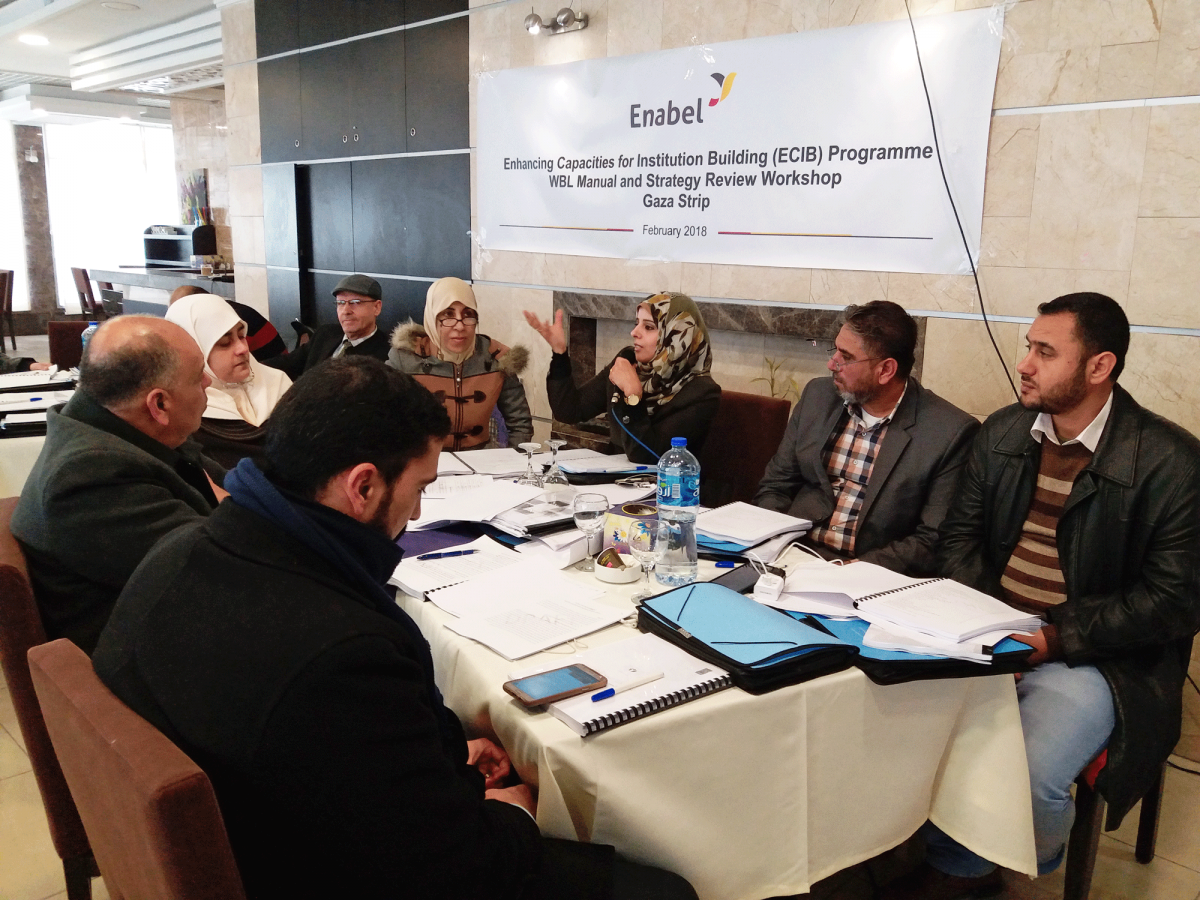
Presentation of the first draft of the Work Based Learning (WBL) strategy and the best practices manual to key stakeholders
Laura SCHILLEMANS | 19/02/2018
Enabel Gaza conducted a two day workshop to present its WBL manual and strategy. The workshop aimed to review and validate the national WBL manual with key stakeholders and to ensure proper implementation of the WBL scheme in TVET institutions. In the first part of the day, the WBL strategy was presented and reviewed by Optimum’s Representative in Gaza, Dr. Wasim Al Habil. Participants from the ministries, the private sector and key TVET players gave their feedback and recommendations. In the second part of the day, participants were divided into groups (with different stakeholders) to discuss the parts of the WBL best practices manual. The stakeholders were very satisfied with the participatory approach used in the workshop, to validated and finalize the strategy and the manual.
-
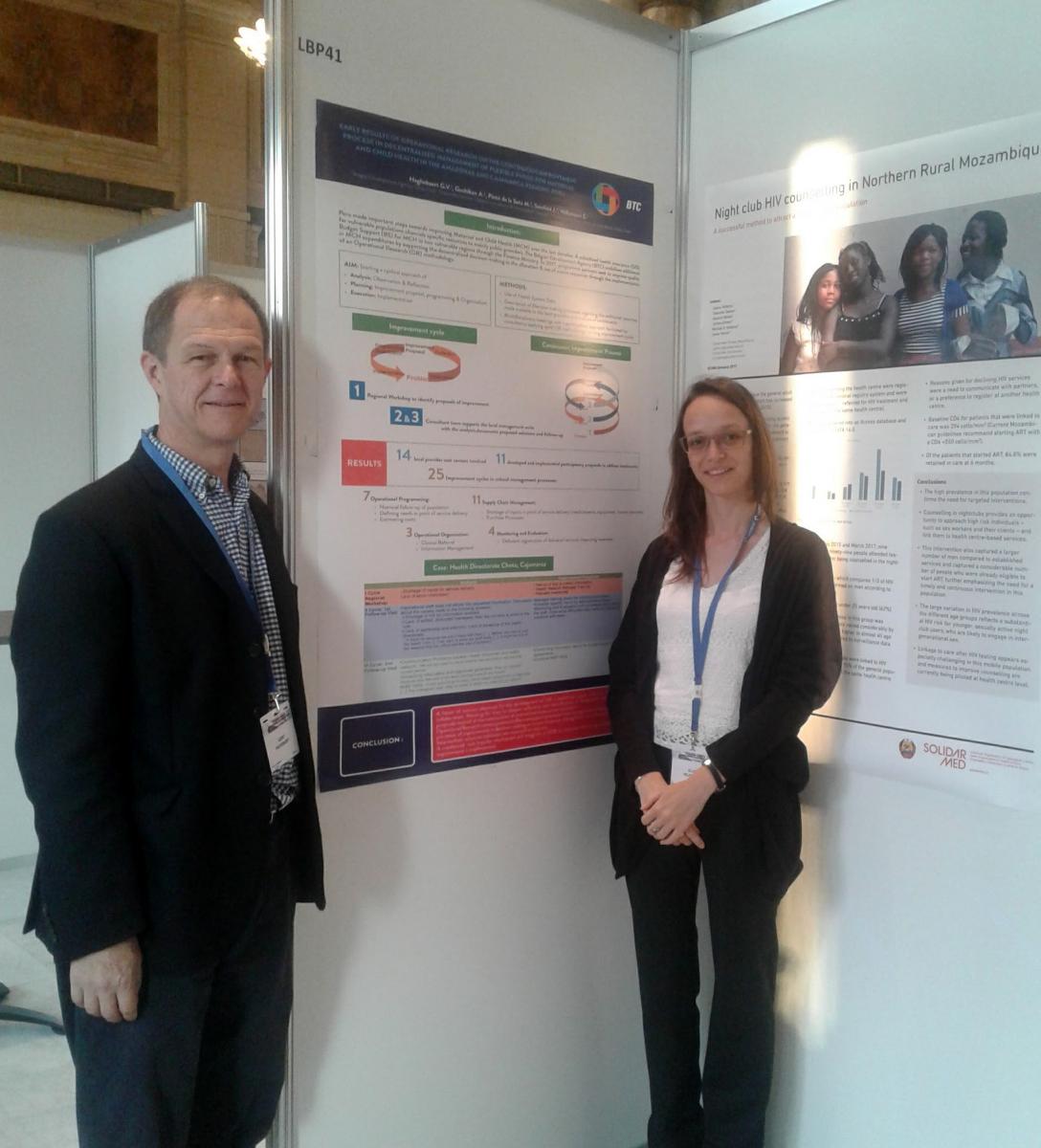
Octubre 2017: 10º Congreso europeo de medicina tropical y salud internacional
Véronique GERARD | 09/02/2018
Es en el marco del Programa de apoyo a la implementación de la política de Aseguramiento en Salud (SISFIN y SISTEC) que desarrolla la cooperación belga en el Perú, que una delegación de profesionales belgas y peruanos participó a este evento.Se contó con la participación de los Dr. Nelly Huamaní y Dr. Victor Bocangel del Ministerio de Economía y Finanzas - MEF y Dr. Geert Haghebaert y Ellen Velkeneers por parte del SISFIN (CTB).Por parte del SISTEC, participaron los Drs. Cisneros Abel Mestas y Luc Geysels. La delegación del SISFIN aprovechó la oportunidad para presentar posters, productos de su experiencia como Programa de apoyo presupuestario al sector salud, más precisamente al Programa Presupuestario Materno Neonatal dirigido a distritos pobres de Cajamarca y Amazonas, regiones con más brechas en los indicadores de este programa. En esta intervención, los gobiernos regionales reciben un apoyo presupuestario para optimizar los procesos de gestión y un aumento de la cobertura de los principales servicios.Por otra parte, presentaron estudios complementarios que buscan aportar un valor agregado en la reflexión a diferentes niveles sobre el desempeño de las políticas vigentes. La delegación tuvo la oportunidad de visitar también el Instituto de Medicina Tropical de Amberes y conocer a la Prof. Dr Lut Lynen, jefe del departamento de enfermedades infecciosas y de los servicios clínicos del IMT.Se reunieron también con- el Dr. Ignace Ronse, responsable del sector salud en la Dirección General de Cooperación al Desarrollo – DGD, - el Dr. Eduardo Gotuzzo, Director del IMT “Alexander Von Humboldt” de la Universidad Cayetano Heredia,- el Dr Karel Gyselinck de la CTB y Presidente de la Asociación europea de Institutos de Medicina Tropical, Presidente del fórum Be.Cause Health y miembro de la organización de este congreso. Sin duda, participar a este seminario y visitas fue muy interesante para esta delegación belga peruana para intercambiar sus avances y conocimientos con pares de todo el mundo.Link to http://ectmih2017.be/Posters : http://belgicacontigo.com/proyectos/programa-de-apoyo-a-la-politica-de-aseguramiento-universal-en-sa...
-
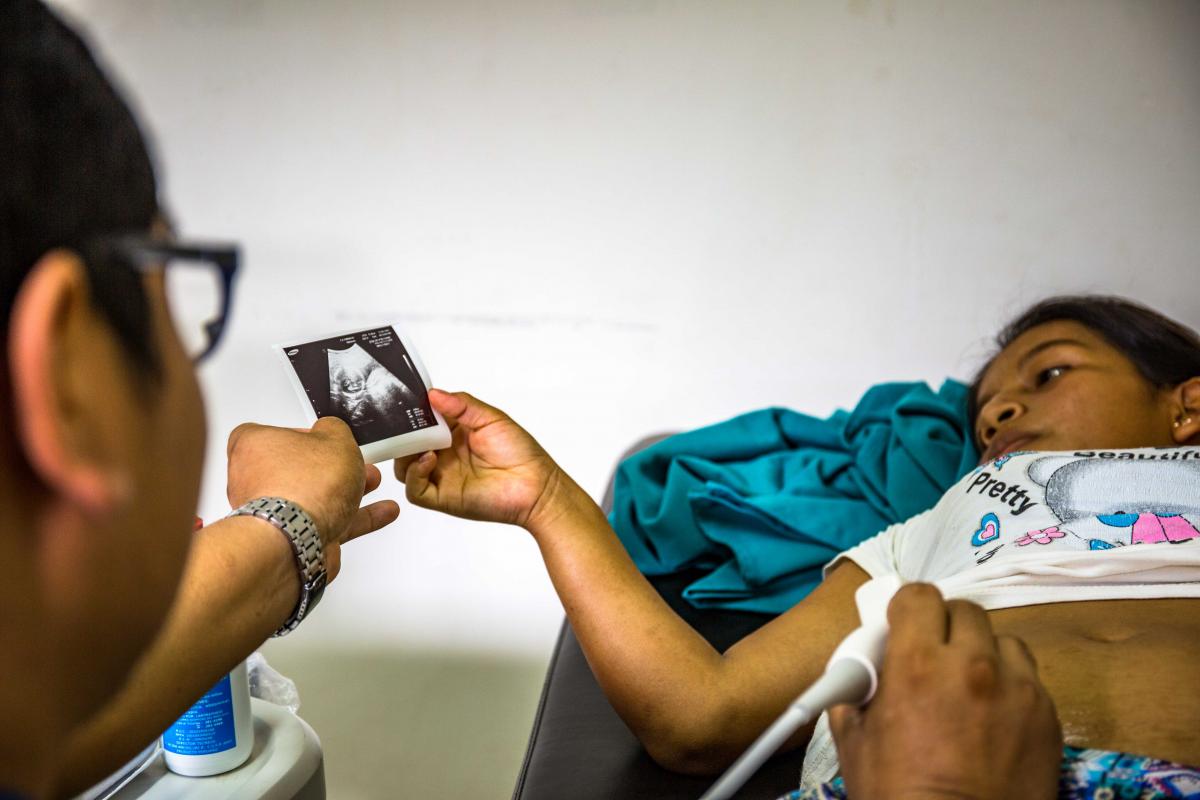
Misión del SISFIN a Amazonas
Véronique GERARD | 09/02/2018
Una misión constituido por funcionarios de- la Embajada Belga (Ambabel-Ewout Stoefs),- el Ministerio de Economía y Finanzas (MEF-Nelly Huamaní y Juan Blas),- el Ministerio de Salud (MINSA- Carmen Mayurí),- el Seguro Integral de Salud (SIS- Juky Vega),- la Superintendencia de Salud (SUSALUD-Pilar Pozo),- la Agencia Peruana de Cooperación Internacional (APCI-Rosario Zamora),- la Agencia Belga de Desarrollo (ex CTB- Enabel Patrick Gaudissart, Geert Haghebaert, Ellen Velkeneers),visitó la Región de Amazonas en el mes de junio 2017, en el marco del Programa SISFIN.El Director de la Dirección Regional de Salud (DIRESA-Pershing Bustamante) los acompañó durante toda la misión. Se visitó establecimientos de salud ( I.1-I.4), hospitales (II.1-II.2), todas las Unidades Ejecutoras (UE) de la región, las unidades desconcentrados regionales (UDR) del SIS, la dirección regional de salud (DIRESA), la mesa de concertación para la lucha contra la pobreza (MCLCP) y el gobierno regional (GORE) en lo cual hubo un encuentro con el gobernador Gilmer Honra.El objetivo de esta misión era observar los resultados del Convenio de Apoyo Presupuestario al Programa Presupuestal Salud Materno Neonatal (CAP-PPSMN) entre el MEF y los gobiernos regionales de Amazonas y Cajamarca. La idea es de constatar que gracias a este presupuesto adicional, las IPRESS brindan una mejor calidad de servicio y que por ende los indicadores relativos a la salud materno neonatal están mejorando.Esta misión permite también dar a funcionarios de todas estas instituciones que deben coordinar entre ellas, la oportunidad de llevar una reflexión conjunta sobre como resolver los cuellos de botella en sus gestión así que una valiosa reflexión sobre esta forma de apoyo de la cooperación (a través del apoyo presupuestario).* Ver la galería de fotos: https://photos.google.com/album/AF1QipMTHlVgrDnmEjWTMGIeVfnO6e9qOfCXMDGUTAne* Ver el video: xxxxx
-

SKILLS DEVELOPMENT FUND
William YEKA | 09/02/2018
The pilot Skills Development Fund (SDF) by Enabel aims to stimulate bottom-up initiatives and partnerships between training institutions and the labour market.It supports a series of joint ventures between training providers and the labour market in order facilitate transition from the world of training (training institutions) to the world of work (the institutions of the private sector and the labour market). The learning and experience from the intervention will shape the development of a National Skills Development Fund.
-
El Programa de Asistentes Junior en el mundo y en el Perú
Véronique GERARD | 08/02/2018
Desde el comienzo del Programa en 2006, más de 500 jóvenes diplomados han participado a esta experiencia. Los jóvenes se ven contratados para trabajar en un proyecto de cooperación al desarrollo sin que una experiencia laboral anterior en el sector y en el terreno sea exigida.El Programa Junior contrata a través de una selección estricta jóvenes profesionales para enviarlos en uno de los países donde la cooperación belga tiene presencia. Puede trabajar tanto en un programa de la Cooperación Gubernamental que en una ONG. De esta manera el Programa Junior contribuye a asegurar una nueva generación de jóvenes quienes al término de su experiencia serán más propicios a comprometerse en la realización de los Objetivos de Desarrollo Sostenibles (ODS). Los jóvenes aportan una contribución profesional al programa en el cual trabajan y por otra parte, adquieren las competencias y la experiencia necesaria para continuar a contribuir a los ODS.El Programa Junior en el PerúEn el Perú, se ha comprendido en seguida la gran oportunidad que significa este programa tanto para los jóvenes que para los proyectos en curso de ejecución que los iban a acoger. Así, desde el primer año, se ha acogido la primera asistente junior en 2006 en la Representación de la (entonces) CTB. Luego, siguieron muchos más. Recién a partir de 2010, se abrió la oportunidad a las ONG belgas de poder acoger también a un AJ en el seno de su organización. Rápidamente el Programa Junior tuvo éxito en el Perú. Los socios peruanos han apreciado mucho la presencia de estos “Ajotas”, comúnmente llamados así por las siglas (AJ). Reconocían su aporte técnico de calidad así que su sentido de compromiso y responsabilidad. También aportaban este espíritu juvenil y un cierto dinamismo contagioso al resto del equipo.Sin duda este programa está dejando huellas y no solamente al nivel profesional.Para un/a joven esta experiencia es una montaña de aprendizaje de aspectos muy variados. Aprenden a responder de manera responsable a la exigencia de un trabajo formal y de poner en práctica su conocimiento. Pensamos también al perfeccionamiento de un idioma, la adaptación a un medio y cultura diferente, administrar su paciencia y frustración, a veces. Administrar su vida y la lejanía con sus seres queridos. En cuanto este último aspecto, algunos encuentran el consuelo a proximidad. También es una de las finalidades de un programa de este tipo; hacer que las generaciones futuras se comprendan mejor para tejer lazos de amistad y porque no, de amor. Algunos datos:* Entre 2006 y 2017, 56 Asistentes Junior han venido al Perú.* Proporción entre Hombre y Mujer: 25% Hombre - 75% Mujer* Proporción entre AJ en proyectos de Enabel (ex CTB) y proyectos de ONG: 70 % Enabel - 30% ONGVer mas datos y gráficos: xxxxxxxxxxxxxxVer galería de fotos de los AJ: https://photos.app.goo.gl/RDKdFAjl3FRwOjdn2
